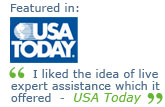Tax Deductions for Tradesmen

Skilled tradesmen, from computer service technicians to mechanics and laborers, can claim deductions on expenses incurred through their job at tax time to lessen their tax burden. If you are an employee, you can expect to receive a Form W-2, Wage and Tax Statement from your employer. Some skilled tradesmen work for themselves, or on contract, and are considered self-employed. Self-employed individuals may receive a Form 1099-MISC, Miscellaneous Income. Even without this document, self-employed treadesmen are required to report their income on a Schedule C, Profit or Loss from Business, and any net profit over $400 is subject to self-employment tax. You may have to pay estimated taxes on the amount you report on your Schedule C.
If you have unreimbursed, work-related expenses, you may be able to claim deductions on them. Keep your receipts to document the expenses, which you will claim on a Schedule A, Itemized Deductions as a miscellaneous itemized deduction subject to a 2% limitation of your AGI. Self-employed tradesmen can deduct expenses on a Schedule C. Some deductible expenses include:
- Required safety equip and personal protection gear, such as steel-toed shoes
- Maintenance and upkeep costs for uniforms or other required clothing, including hard hats, coveralls, and gloves, as long as they are not suitable for street wear.
- Equipment that is replaceable within the year
- Licensing fees, flat rate occupational taxes, or other certification costs, as long as it is not for the first certification you receive
- Premiums on liability and wrongful acts insurance
- Union or association dues
- Fees for subscriptions to trade publications and magazines related to your industry
If you are in a period of temporary unemployment, you may deduct expenses related to job searching, as long as you continue to seek employment in the same field in which you were previously employed. Hold odd jobs to support yourself during the unemployment doesn't disqualify your ability to deduct the related expenses.
Some educational courses can be deducted if they meet specific requirements. Generally, refresher courses, vocational classes, and classes on new developments in the trade are deductible. The class can't be deducted if it qualifies you for the minimum requirements of your job, or for a whole new career entirely.
Those who file a Schedule C are entitled to business expense deductions including:
- Traveling expenses if you use your own vehicle for business expenses
- Any fees associated with legal or professional services related to the business
- Rental fees for property used by the business
- Business trip expenses, though they need to meet all the standard requirements for time away and distance
- Equipment repair costs
- Business supplies
- Bad business debts
- Personal property or excise taxes
- Advertising related fees
- Compensation, salaries, or commissions paid to employees



